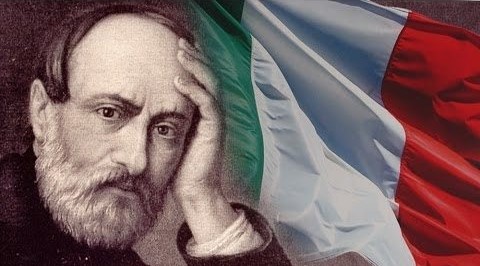Giuseppe Mazzini was a central figure in the Italian unification movement and is known for his passionate advocacy of nationalism and democracy.
Early Life and Exile
- Born in Genoa, 1807- Mazzini was born into the tumultuous era of European revolutions.
- Members of the Carbonari- Initially joined the Carbonari, a secret revolutionary society.
- Exile at 24- Forced into exile in 1831 for attempting a revolution in Liguria, marking the beginning of his lifelong struggle for Italian unification.
Mazzini’s life and work were characterised by his unwavering commitment to the cause of Italian unification and the spread of democratic ideals, making him a pivotal figure in the history of nationalism in Europe.
Contribution to Nationalism
- Founded Young Italy and Young Europe- While in exile, Mazzini established these societies in Marseilles and Berne, respectively, attracting like-minded individuals from across Europe.
- Vision of a Unified Italy- Advocated for the unification of the fragmented Italian states into a single republic, challenging the existing patchwork of kingdoms and states.
- Belief in Nationalism as a Divine Plan- Mazzini held a profound belief that nations were the natural units of mankind, ordained by God.
Ideological Beliefs
- Opposition to Monarchy- Mazzini was vehemently anti-monarchist, believing in the establishment of democratic republics over monarchies.
- Democratic Republics- His vision extended beyond Italy, advocating for democratic governance and the establishment of republics throughout Europe.
- Influence and Threat- His radical ideas and activities made him a significant threat to the conservative order, leading to widespread fear among monarchs and conservatives. Metternich notably called him “the most dangerous enemy of our social order.”
Also Check – Giuseppe Mazzini and the Globalization of Democratic Nationalism, 1830-1920
Legacy and Impact
- Secret Societies- Mazzini’s model of using secret societies to spread nationalist and revolutionary ideas was adopted in various European regions, including Germany, France, Switzerland, and Poland.
- Basis of Italian Liberty- Mazzini’s efforts laid the ideological foundation for the future unification of Italy, emphasising liberty and unity as core principles.
Also Check – The Role of Women in Nationalist Struggles – Short note
Also Check – The Frankfurt Parliament
Also Check – Giuseppe Mazzini – Italian Revolutionary thinker
Also Check – Giuseppe Garibaldi- Italian freedom fighter
Also Check – Count Camillo de Cavour
Also Check – The Rise of Nationalism in Europe- 39 Mcqs
Also Check – The Rise of Nationalism in Europe – Class 10 – Notes
Also Check – Otto von Bismarck- Architect of German Unification
Also Check – Briefly trace the process of German unification
Also Check – Napoleon and the Napoleonic Code- Impact on European Societies and Legal Systems

